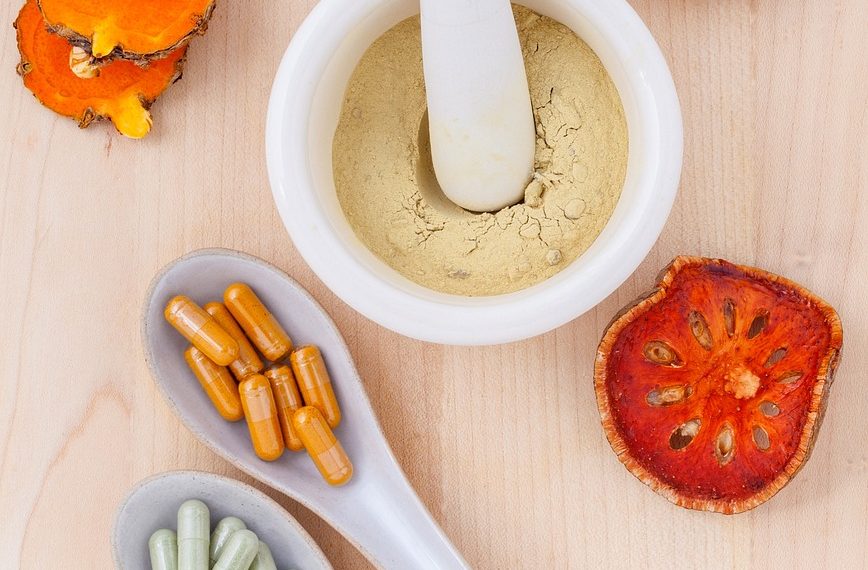Navigating the world of dietary supplements can be overwhelming. With so many options available, from vitamins and minerals to herbal extracts and protein powders, it can be difficult to determine which ones are actually worth adding to your daily routine. While supplements are not a substitute for a healthy diet, they can help fill nutritional gaps, enhance overall well-being, and support specific health goals. Whether you are looking to boost energy, improve immunity, or support physical performance, this article breaks down five essential supplements that you should know about and consider incorporating into your health regimen.
1. Vitamin D
Vitamin D is one of the most important supplements for overall health, yet it is also one of the most commonly deficient nutrients. Known as the “sunshine vitamin,” vitamin D plays a crucial role in bone health by promoting calcium absorption. It also supports immune function, helps regulate mood, and has been linked to a reduced risk of chronic illnesses like cardiovascular disease and certain cancers.
Many people struggle to get enough vitamin D through sunlight alone, particularly those living in northern climates, those with darker skin tones, or those who spend most of their time indoors. Foods like fatty fish, eggs, and fortified dairy products provide some vitamin D, but supplementation is often necessary to maintain adequate levels. Taking a daily vitamin D3 supplement, especially during the winter months, can help ensure that your body gets what it needs for optimal health. The recommended dosage may vary, but most experts suggest taking between 1,000 to 2,000 IU per day, depending on individual needs and blood levels.
2. Omega-3 Fatty Acids
Omega-3 fatty acids are essential fats that the body cannot produce on its own. These healthy fats are known for their anti-inflammatory properties and are incredibly beneficial for heart health, brain function, and reducing overall inflammation in the body. Omega-3s have also been shown to improve mood and support cognitive function, making them an excellent supplement for both mental and physical health.
The two primary forms of omega-3 fatty acids, EPA and DHA, are primarily found in fatty fish like salmon, mackerel, and sardines. If you do not consume fish regularly, a high-quality fish oil or algae-based omega-3 supplement can help you meet your needs. The American Heart Association recommends consuming at least two servings of fatty fish per week, but if that is not feasible, taking 1,000 to 2,000 mg of EPA and DHA from a supplement can provide similar benefits.
3. Magnesium
Magnesium is an essential mineral involved in over 300 biochemical reactions in the body, including muscle function, energy production, and nervous system regulation. Despite its importance, magnesium deficiency is common, with many people not getting enough through their diet. Symptoms of magnesium deficiency can include muscle cramps, fatigue, irritability, and sleep disturbances.
Magnesium-rich foods include leafy green vegetables, nuts, seeds, and whole grains, but due to factors like soil depletion and modern agricultural practices, the magnesium content of these foods has decreased over the years. Supplementing with magnesium can help alleviate symptoms like muscle cramps, promote relaxation, and improve sleep quality. There are different forms of magnesium supplements available, including magnesium citrate, glycinate, and oxide, each with its own specific benefits. Most adults need between 300 to 400 mg of magnesium per day, and it’s best to take it in the evening to support relaxation and restful sleep.
4. Probiotics
Probiotics are live bacteria that provide numerous health benefits when consumed. They are particularly known for their role in supporting gut health, but their benefits extend beyond digestion. A balanced gut microbiome is crucial for a well-functioning immune system, and probiotics can also have positive effects on mental health by influencing the gut-brain axis.
Fermented foods like yogurt, kefir, sauerkraut, kimchi, and kombucha contain naturally occurring probiotics, but for those who do not regularly consume these foods, a probiotic supplement can be beneficial. When choosing a probiotic, look for a supplement that contains multiple strains of bacteria, such as Lactobacillus and Bifidobacterium, and at least 10 billion CFUs (colony-forming units). Taking probiotics consistently can help restore balance in the gut, improve digestion, and support overall immune function.
5. Protein Powder
Protein is a fundamental macronutrient that plays an important role in muscle repair, immune function, and hormone production. For individuals who struggle to meet their protein needs through diet alone—such as athletes, vegetarians, or those with busy lifestyles—protein powder can be a convenient and effective supplement to help fill the gap. There are several different types of protein powders available, including whey, casein, soy, and plant-based options like pea and rice protein.
Whey protein is one of the most popular and well-researched forms of protein powder. It is quickly absorbed and contains all nine essential amino acids, making it an ideal option for post-workout recovery. For those who are lactose intolerant or prefer a plant-based diet, pea protein or a blend of plant-based proteins can provide a complete amino acid profile as well. Including a protein shake in your routine, especially after exercise, can help support muscle growth, aid in recovery, and keep you feeling fuller for longer.
Choosing the Right Supplements
When deciding which supplements to incorporate into your routine, it is essential to focus on your specific health needs and goals. It’s always best to consult with a healthcare professional or a registered dietitian before starting any new supplements, as they can help assess your individual requirements and recommend appropriate dosages.
Supplements can be beneficial, but they should not replace a well-balanced diet. Prioritize getting your nutrients from whole foods whenever possible, and use supplements to fill in the gaps where your diet may be lacking. Quality is also key when choosing supplements; look for reputable brands that provide third-party testing and transparent ingredient lists.
Integrating Supplements into a Healthy Lifestyle
Supplements can play an important role in supporting a healthy lifestyle, but it is essential to integrate them in a way that complements a balanced diet, regular physical activity, stress management, and good sleep hygiene. Here are some tips for making the most of your supplements:
- Consistency: For supplements to be effective, consistency is crucial. Take them at the same time each day, and consider setting reminders to ensure you do not miss a dose.
- Follow Recommended Dosages: Taking more of a supplement does not necessarily mean better results. Follow the recommended dosage on the label or as directed by a healthcare provider to avoid potential side effects.
- Monitor Your Body: Pay attention to how your body responds to each supplement. If you notice any negative side effects, stop taking the supplement and consult with a healthcare professional.
- Pair with Meals: Certain supplements, such as vitamin D and omega-3s, are best taken with a meal that contains healthy fats to enhance absorption. Consider how to best pair each supplement with your daily meals to maximize their benefits.
Final Thoughts on Supplements
While supplements are not a magic bullet, they can play a valuable role in helping you achieve and maintain optimal health. Vitamin D, omega-3 fatty acids, magnesium, probiotics, and protein powder are five versatile supplements that can address a range of health needs, from boosting immunity and supporting mental health to improving muscle recovery and digestion. By choosing high-quality supplements and using them as part of a comprehensive health and wellness strategy, you can help ensure that your body gets the support it needs to thrive.








